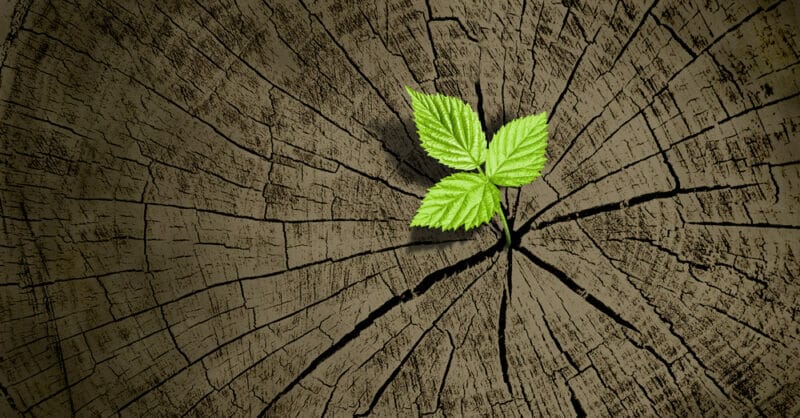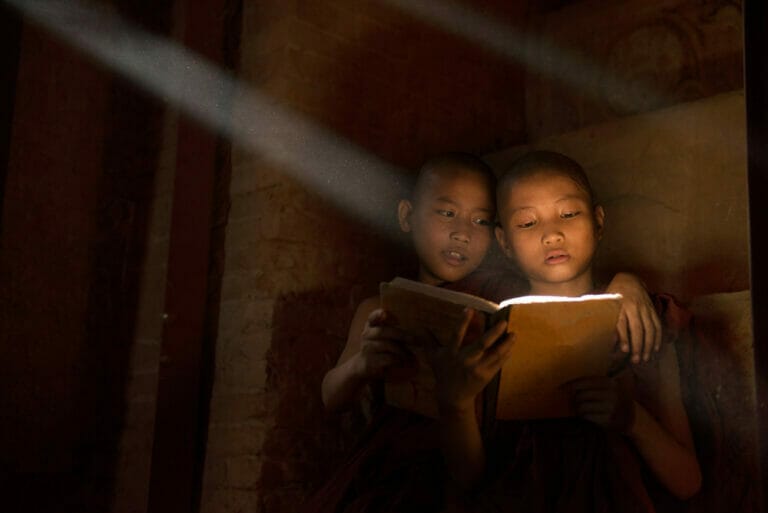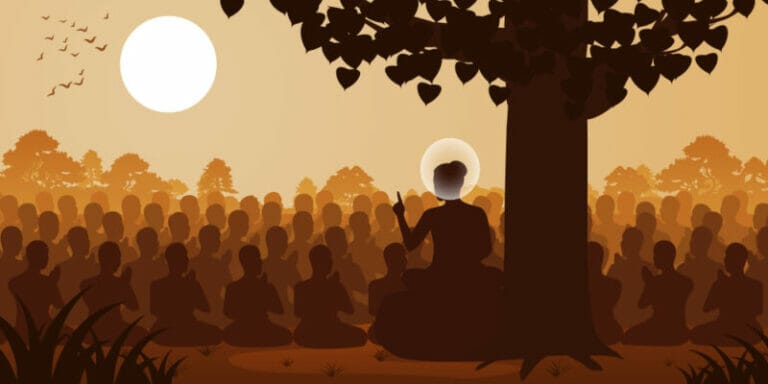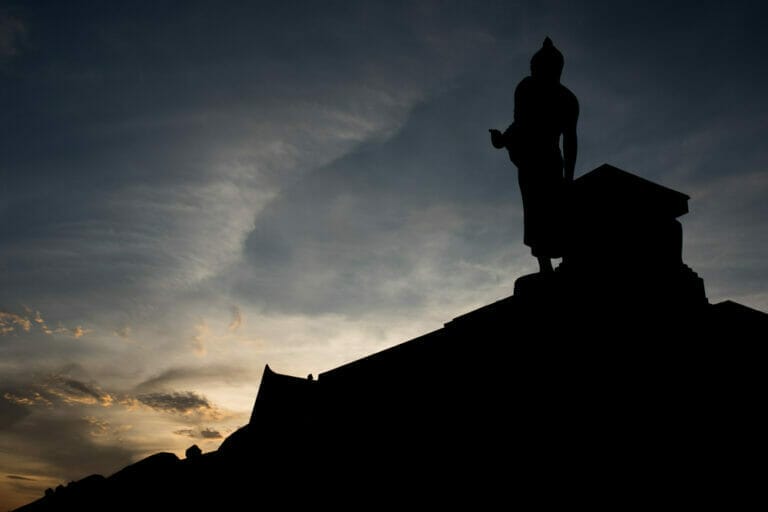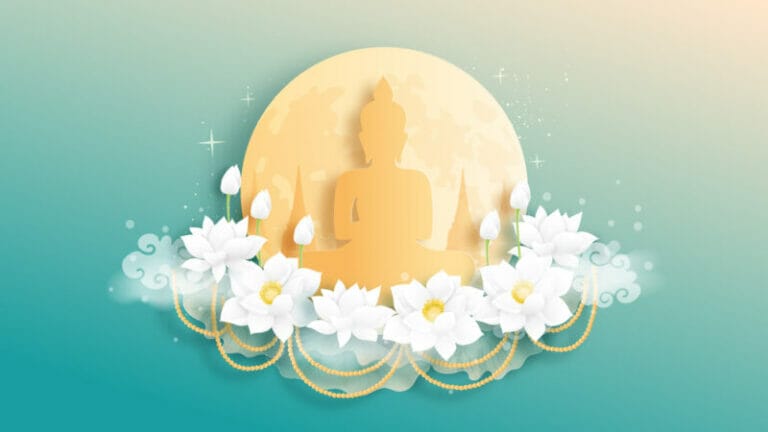Soul’s Journey : Charting the Course of Buddhist Rebirth
Buddhists believe that there are cycles of death and rebirth throughout one’s lifetime.
This post will explore some of the beliefs and theories related to rebirth or reincarnation within Buddhism.
The concept of the soul being trapped in a cycle of death and rebirth until it achieves purification is well recognized in Buddhism.
It’s important to note that the terms “rebirth” and “reincarnation” are not synonymous, though they are often used interchangeably.
Do the Buddhists Believe in Reincarnation?
Yes, Buddhism acknowledges rebirth.
However, rebirth and reincarnation are subject to different definitions. Buddhism denies traditional views on reincarnation because it believes the soul does not have a permanent nature.
And therefore, after death, it ceases to exist. It doesn’t go anywhere because there’s nowhere to go.
Buddhism has its own theory that associates rebirth with samsara and karma. Rebirth in Buddhism refers to the continuation of life which is affected by causation from one incarnation to another.
The idea is an expression in Buddhist thought stating that events are not random; rather, they cause other events and occur within a context of continuity and karma (causal actions).
Karma can be roughly defined as action or intention that causes effects on future circumstances including rebirths.
However, current lifetime’s karma may not necessarily influence one’s future lifetimes beyond the effect of natural laws without free will.
Did Buddha Believe in Rebirth?
If you study Buddha from his childhood, all through the course of his life including his last day, there will come to your mind an irresistible and indescribable feeling that he believed in it with a certainty which is beyond doubt.
He believed in rebirth and a law-governed continuity from one life to another. The Buddha denied an immortal soul (of all living beings) and asserted that there is no self apart from the five aggregates.
Traditional terms for the self-refer to something that is definite and tangible in contrast to the five aggregates; it also differs from any material form or other mental state experienced by senses.
However, the self is only a conventional designation that refers to a process of change which includes color, shape and any other material form as well as a mental state.
The fundamental concept behind rebirth is karma – actions having consequences.
In the case of reincarnation, those actions follow you from life to life in an unbroken chain until you make amends for your misdeeds and learn things the hard way.
The Buddha believed that the physical body was corrupt and impermanent, so it had to be discarded after death.
The idea of rebirth rejects any conception of an unchanging self or soul.
According to Buddhism, a new consciousness comes into being with every birth and passes on when the person dies, thus eliminating a permanent unchangeable entity that moves from one life to another.
Rebirth is not about someone coming back as you do in reincarnation but rather it is the passing away of one state of existence and arising in another – a process of transition/transmigration which will cease only when Nirvana is reached.
Why Did Buddha Believe in Reincarnation?
The Buddha believed in rebirth, but not reincarnation in the conventional sense.
It is not about an unchanging self or soul (the idea of an atman, which the Buddha denied). The Buddha explained rebirth through karma and dependent origination.
Karma attaches itself to a person like a shadow, giving rise to a particular set of circumstances that conditions one’s current life; this process continues lifetime after lifetime until it comes to rest with Nirvana as the final goal.
Is Reincarnation Buddhism or Hinduism?
Depends on how you define reincarnation. Hinduism sees reincarnation as the act of a soul changing bodies, while Buddhism sees it as the flow of life from one to the next.
Hinduism’s cycles of life, death and rebirth are essentially circular, while Buddhism sees the process as ultimately linear.
Hinduism believes in multiple lives, where one may become a man or a woman depending on their karma; according to Buddhism you will live only one life but will be born again based on your karma.
What Is the Difference Between Hinduism and Buddhism Reincarnation?
Though both religions accept the concept of rebirth, there are notable differences between them:
- 1. Hinduism accepts that souls can take birth in different species (human being – animal being) while Buddhism denies it.
- 2. Buddha rejected atman (soul); he accepted only five aggregates (body, feeling, consciousness, volition and sensations).
Hence, Buddhism does not accept rebirth as understood in traditional Hinduism, which believes that the soul (atman) transmigrates to another body upon death.
However, it does believe in an afterlife and a process of transition/transmigration after death wherein current lifetime’s karma may not necessarily influence one’s future lifetimes beyond the effect of natural laws without free will.
Events are not random; rather they cause other events and occur within a context of continuity and karma.
Why Does Hinduism and Buddhism Believe in Reincarnation?
Hinduism and Buddhism teach that we are bound to the cycle of birth, death, and rebirth until we have attained enlightenment.
Why is this so? If you believe in a permanent soul, as Hinduism followers do, then it makes sense to tie its fate to the life cycle – souls arise out of the soul world into an incarnation with some personality traits based on good or bad karma earned in previous lives.
Once a person dies, his or her indestructible soul goes back to live again (or go on) in another body somewhere else along its journey toward perfection (enlightenment). There’s nothing left behind at death but a new set of circumstances due to past actions.
On the other hand Buddhism followers justify the idea of rebirth by karma. The karma from past lives is the reason that a person is born here and it’s also the reason for the circumstances one finds oneself in.
In order for a person to escape the cycle of rebirth, he or she must achieve enlightenment.
In Buddhism, this means the soul becomes free from all desires in order to stop its cycle of birth and rebirth. It goes without saying that it takes multiple lifetimes (or rebirths) to achieve this final stage.
Do Zen Buddhists Believe in Reincarnation?
This is a difficult one to answer, because many Zen Buddhists believe in rebirth, but others do not.
Zen teaches that what is important is to live in the present; so many modern Zen Buddhists are rejecting the concept of rebirth. The concept of rebirth only serves as an excuse for people to live in the past or future and thereby neglect the present moment.
In other words, while many might be interested in how they got here and where they may go next when they die, Zen teaches us that it’s most important to focus on living life now.
The issue with Samsara is open-ended questions about things we have no control over – such as whether we will take birth again and if so, what we’ll be born as. Very little can actually be known about these things.
Does Mahayana Buddhism Believe in Reincarnation?
Yes, Mahayana Buddhism believes in rebirth (but not reincarnation). Mahayana Buddhists believe that you can be reborn in any of the six realms.
The six realms are – gods, demi-gods, humans, animals, hungry ghost and hells. The realm you are reborn into is dependent on your karma.
However it is possible to escape the cycle of rebirth by following the teachings of a Buddha and attaining enlightenment as a Bodhisattva.
There’s no reincarnation – there’s only rebirth since there is no permanent soul or self.
Does Theravada Buddhism Believe in Reincarnation?
Mahayana Buddhism and Theravada Buddhism both believe in rebirth (and not reincarnation).
Does Tibetan Buddhism Believe in Reincarnation?
Rebirth is also part of Tibetan Buddhist belief system. Tibetan Buddhism also recognizes a 49-day interim existence (bardo) between death and rebirth.
Buddhist Persistence Believe In Reincarnation
There is nothing wrong that many Buddhists have a strong belief in individual reincarnation. Parables from the sutras and coaching aids like Tibetan lifestyle lean towards this belief.
One of the renowned priests, Rev Takashi Tsuji, expresses that Buddha left almost 84000 teachings: mainly represents the various backgrounds, characteristics, tastes etc. The Buddha trained each individual according to their mental and spiritual capacity.
The dogma of reincarnation was a powerful ethical teaching for those people who were living in villages during the time of Buddha. Fear of birth into the animal world frightened many people from acting like animals. If we analyze the teaching today, we are not confident because we cannot understand it rationally. Because such a story doesn’t make sense to the modern mind.
There is a level of delicate energy in the human mind which is not completely material. Basically, it is a refined form of continuity that Western scientists have not looked for because they don’t have the tools to measure it.
There are different people stating that dying and being reborn, and they remember what happened to them. These are not only near-death memories, what they experience, these are the people who have died and report from another world that they remember what happened to them.
Western sciences have dismissed these concepts, but there are many people who claim that and give considerable protests of remembering their own experience of previous lives.
After death the subtle mind splits its connection from the whole personality as well as body. The way a person prepared, the direction of different senses, intellectual insights, languages and everything all have gone, there is nothing left.
On the other hand, an elusive mind converts the good and bad abilities like the innermost ability towards kindness and sincerity and on the opposite side selfishness and egoism are dream like personifications.
People who believe in soul theories believe that there is nothing wrong with what they are doing and how they are behaving. At last their permanent soul will be sent to heaven. They have a subtle concept that they are made for such peaceful land because they believe in the right deity.
If we go through history, the people who have strong belief in a permanent soul, used to slaughter people in the name of religion and get themselves released from penalties and involvement of their divinity.
Buddhists always have a strong belief on the continuity of nature at an elusive and gross level. If we think that how we act today this will definitely influence our future experiences. By this we made up our mind on attempting to be better in our deeds rather than worse. The moral imperative is most intense in this situation, which we think that human beings throughout the past have fought this type of distance of endless contribution.
Most Renowned Buddhist Teachers’ Perspective about Reincarnation
Thanissaro Bhikkhu
According to Thanissaro Bhikkhu reincarnation has always been one of the main central teachings in Buddhist tradition. He explains that he was looking for a contentment that would not be affected by being born, suffering from ailment and dying.
He wishes eternal happiness that’s why he left his previous mentors because their teachings didn’t help him to achieve his goal. Furthermore, when Buddha became rational, he went through the previous lives and observed how everyone was going through cycles of being born and dying because of their activities, or karma.
Dalai Lama
The Dalai Lama stated that we do not believe in an isolated soul that lives on after we die. Our actions in this life affect what is happening in our lives and will surely affect our future. Moreover, he gives us an example by saying that just like yesterday weather affects today’s.
Chogyam Trungpa
Talking about reincarnation, Chogyam Trungpa demonstrates that nothing will stay the same, life is the name of continuity. After great research over it, he compares all this to a river that changes all the time but still keeps flowing. So, change and continuity are those things that allow us for rebirth to happen.
Zoketsu Norman
To explain the process of reincarnation Zoketsu Norman Fischer uses the specimen of an acorn tree that was turning into an oak tree. He stated that our gross lives are continuous from one flash to the next and from one life to another. Each and every moment or flash is significant because they lead towards the next one.
Narayan Helen
Narayan Helena says that what we are doing here in this world and thoughts that come to us all have great influence on what happens to us in the next life. Although if we do not have firm belief in reincarnation, we can easily observe how our past experiences shape our present.
No, if you have understood it wholeheartedly then this thing will definitely inspire you to practice something good and positive in our lives.
Shohaku Okumura
A legendary buddhist shares his personal experience regarding reincarnation that he is not if there is a process of rebirth. Anyhow after sometime he realizes that it is very important to live a good life. According to him rebirth has actually happened, doing good things will now have positive consequences even after our death.
Jetsuma Tenzin Palmo
Jetsunma Tenzin Palmo explains that in Buddhism, we have a strong belief that we have lives in different forms. Our wits of what we are keep changing, but they play with our consciousness that continues on. Everything related to us, either our mind or our bodies, keeps changing all the time. But there is a kind of continuity that permits rebirth.
Thich Nhat
Thich Nhat states that in Buddhism, we do not believe in a soul that moves from one body to another. Basically, our actions create a kind of energy that will continue after our death. By giving the examples of clouds, he further explains how clouds formed and became the same process that happened to us. We are always changing after every moment.
Frequently Asked Questions
What do you mean by Reincarnation?
Reincarnation is the belief that after death, a person’s soul or consciousness can be reborn into a new body. Many people believe that reincarnation offers various opportunities for spiritual growth and resolving past karma.
What is the main goal of the reincarnation process in Buddhism?
It is understood that life is suffering, the main goal of reincarnation in Buddhism is to stop the cycle of suffering by repeating death and rebirth. So, this will be the main goal of reincarnation which is called nirvana.
How does karma mark reincarnation?
Karma, the law of cause and effect, is believed to determine the conditions and circumstances of one’s next life based on past action.
Write three realities about reincarnation?
- Soul is eternal
- Selflessness, generosity and many other good deeds will return in positive consequences
- Good association is the key for spiritual growth
Conclusion
Reincarnation according to Buddhism is that our souls or consciousness are reborn after death. Buddhists doctrine of Anatta suggests a continuous process of rebirth that is dependent on one’s actions or karma, but it cannot be stock-still and motionless self being reborn.
They always have a strong belief in the continuity of nature at every level. Our good deeds will absolutely affect our future. By this we made up our mind on trying to do good deeds more and more rather than worse.

